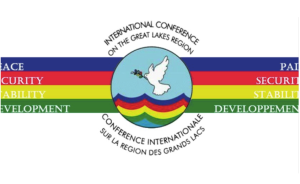. TOLERANCE & SOLIDARITY .
An article from conference website
The International Conference on the Great Lakes Region (ICGLR) has concluded a two-day Regional Peace Education Summit, which it co-organised with Interpeace and UNESCO in Nairobi, Kenya. Delegates at the summit, held from 3-4 March 2016, included officials of Government Ministries responsible for Education, Gender and Youth members of the national parliaments and provincial governments, and practitioners from Burundi, the DRC, Rwanda and Uganda, as well as technical experts in peacebuilding and peace education from Interpeace and UNESCO.

Ambassador Josephine Gaita, ICGLR National Coordinator of the Republic of Kenya, officially opened the summit on March 3rd. The summit focused on the implementation of formal peace education in three ICGLR member states, namely Burundi, the Democratic Republic of Congo (DRC), and Rwanda. The Republic of Uganda was also present as an active observer, while the Republic of South Sudan was represented by the country’s ICGLR National Coordinator.
Proceedings included presentations on the state of peace education in Burundi, the DRC, Rwanda and Uganda, expert presentations on the policy and practice of peace education, plenary discussions and sessions where each delegations could reflect on their country specific ideas on the way forward for effective implementation of formal peace education. Participants expressed the need for regional level peace education strategies to respond to conflicts in the Great Lakes which have often had a cross border dimension.
The summit was premised by two prior occasions. The first was an Extraordinary Summit of ICGLR Heads of States on Youth Unemployment, held on 24 July 2014 in Nairobi, which emphasized the important role of the youth in the pursuit of peace, security and stability within the region. The second was a 2014 participatory action research process carried out by Interpeace and its six partner organisations in Rwanda, Burundi and the eastern DRC. The research was based on consultations with diverse actors across the Great Lakes region and revealed that most people considered identity-based stereotypes and manipulations as a fundamental obstacle to sustainable peace in the region. The research participants suggested that peace education could serve as a priority intervention to address challenges related to identity-based stereotypes and manipulation, arguing that peace education could both strengthen existing peacebuilding efforts and help in the prevention of conflict among future generations.
(Article continued in right column)
Question related to this article:
Solidarity across national borders, What are some good examples?>
(Article continued from left column)
Interpeace’s Regional Director for Eastern and Central Africa (ECA), Johan Svensson, lauded the national delegations and the ICGLR for taking into account the sentiments of the local populations in their efforts to achieve sustainable peace and security both in their countries and in the region.
“Your commitment as stakeholders is inspiring because you are responding directly to your people’s call for peace education,” Mr Svensson remarked at the summit.
The summit revealed that peace education efforts already existed in all the three countries, albeit at varying levels of implementation. Among some of the challenges discussed was the need to develop comprehensive peace education frameworks and to foster a pedagogy that would create harmony in the understanding of integration of peace education in the three countries. These findings were emphasized by ICGLR Executive Secretary, Professor Ntumba Luaba, who called for the creation of a regional ICGLR peace education programme and acknowledged the delegates for making the first steps in the regional cause for peace education. Ministry representatives of the country delegations committed to sharing the findings of the summit with the concerned actors in their respective countries, in order to make sure that the summit results will inform future peace education efforts.
“Peace education has the potential to create a new generation of women, men and youth who will be the guardians of peace in the region,” Professor Ntumba told participants at the summit.
Professor Luaba also lauded ICGLR’s partnership with Interpeace, which made it possible for the summit to take place, and suggested the organisation of a similar Peace Education summit with participation from all the twelve ICGLR Member States. The ICGLR Member States include the Republic of Angola, the Republic of Burundi, the Central African Republic, the Republic of Congo, the Democratic Republic of Congo, the Republic of Kenya, the Republic of Rwanda, the Republic of Sudan, the Republic of South Sudan, the United Republic of Tanzania, the Republic of Uganda and the Republic of Zambia.
(Thank you to the newsletter of the Global Campaign for Peace Education for sending us this news.)